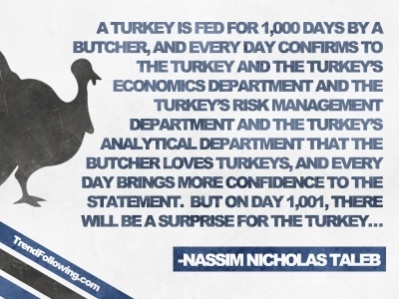Koolau
Give me a museum and I'll fill it. (Picasso) Give me a forum ...
+1
The "prudent man" rule for fiduciaries limits a single holding to 15% of a portfolio. Some limit to 10%.
FWIW, 14% CAGR is better than Bernie Madoff paid. Falls into the too good to be true category for me. YMMV, however.
Couldn't confirm or refute the "prudent man" rule, but I would think that an investment in a "total stock market" fund or one that's based on the S & P 500 would not be considered too concentrated - maybe even at 50%. After all, there are a lot of different equities represented. That's why index funds seem to work most of the time for most folks with a reasonable time frame. Not suggesting a debate, just sayin'... YMMV

